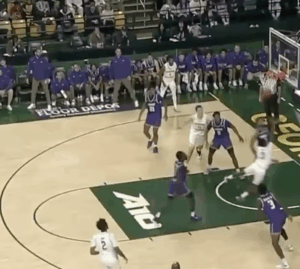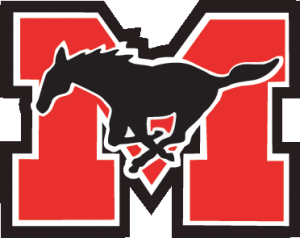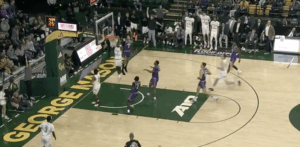“I’ve gone by what the late Katherine Graham of the Washington Post said: ‘Do what you love and feel you make a difference, what could be better than that?'”
That’s how Gay Nuttall, a towering giant in the suburban newspaper industry in the Washington, D.C., metropolitan region, concluded her exclusive interview with the News-Press last month, conducted within weeks of her retirement after 16 years at the helm of the 1.6-million circulation Washington Suburban Press Network (WSPN).
Nuttall, who found her personal niche in mid-career switching from school teaching to newspaper advertising sales, founded the WSPN in the early 1990s, and brought the Times Community Papers of Virginia, the Gazette papers in Maryland and the Falls Church News-Press, among others, into a loose network whose combined circulation numbers would draw national advertising accounts away from the major urban dailies.
For the better part of two decades, Nuttall has epitomized the very personality and drive of the WSPN. She tirelessly traveled the Lower 48 to meet with corporate executives, ad agencies and media buyer big wigs in New York, Chicago and other major metropolitan centers.
A true believer, she preached the word relentlessly about the benefits of community and suburban newspapers, about the ability of major media buyers to better target their advertising and get a “better bang for the buck” among newspapers that are often held onto for an entire week, with readerships that are often ferociously loyal.
She also stressed the persisting relevance of such papers, with local news that cannot be found on the Internet or 24-hour news networks on TV, even while large urban dailies are rapidly losing readership.
She served as president of the Suburban Newspapers of America, and for a decade on its board of directors, and was respected as a veritable “Wonder Woman” among the publishing leaders of the industry it represented. She carried her message not only to the captains of industry, but to her own network of publishers and editors, too. She constantly reminded them of their unique role, and on the lasting value of “digging deeper” into local communities for quality and unique news coverage. Especially in hard times, she stressed, “It is important not to cut back on the quality of local coverage.”
“The secret to being a good salesperson,” she told the News-Press, “is a willingness to keep beating your head against a wall, and discovering the wall begins to give,” adding, “You must also believe you are doing it for a good cause.”
With the worsening crisis currently unraveling many major urban daily newspapers, involving sharp drop-offs in readership and advertising revenue, and exacerbated by the present recessionary economic trends, the fruits of Nuttall’s tenacious and persistent efforts for 16 years has contributed significantly to the de-coupling of the fate of the big urban dailies from that of good community and suburban weeklies.
Market analysts have reported much lately of the relative fiscal health of good community newspapers compared to urban dailies. Even in the tough economic times, and with the unavoidable decline of critical components such as classified ads (to the Internet) and real estate advertising, community papers, according to the Suburban Newspapers of America, are roughly holding their own, while losses at the large urban dailies are monstrous by comparison.
Nutall’s innovative concept of creating a network out of an array of discrete local and community newspapers was the key to her success. She traveled to community newspaper offices all around the D.C. Metro region, meeting with the local publishers. She wandered unannounced into the small office of the News-Press in the summer of 1993, having been urged to do so by the then-publisher of the McLean Providence–Journal, and convinced it to sign on.
Essential was to create the network out of independent, non-competing newspapers, which meant that in some cases of overlapping or competing circulations, she had to chose which paper to invite. The News-Press was, and has remained, the only paper in the five zip codes of greater Falls Church, a niche covering about 100,000 people.
The Times Community Papers and Gazettes of Maryland partnered to provide the funding and assume ownership for the launch of her venture. Taking on the role of president and CEO, Nuttall also benefited, she told the News-Press, from the fact that the community newspapers in the Washington, D.C. region “are the best such papers in the country, by far.”
Armed with an impressive 1.6-million combined circulation of all the newspapers in her network, Nuttall recruited a sales team, and took the point, herself, marching into large corporate headquarters to make a strong case for its competitiveness with the mighty Washington Post, in particular.
Since then, she said, she’s brought $106 million in national advertising into her network’s newspapers. But even more important than that, she’s won the respect among major media buyers for community newspapers that will mean more and more going into the future.
The decline of the urban dailies continues to present an enormous opportunity for community newspapers, she told the News-Press. They can operate with greater flexibility and agility, bound by far fewer overhead costs, and with access to exclusive, important local news that will not be found anywhere else.
Nuttall graduated from James Madison University and taught high school English for nine years while getting married and having children. She then took a continuing education course in “Planning a Second Career” at a University of Virginia extension. She took a career preference test that showed her greatest interest was in advertising.
She said she couldn’t relate to that test outcome at first. But then she took a community outreach position with a development company, and then became the advertising director for the Connection Newspapers of Northern Virginia before a tough economy led to layoffs there in 1991. She said that she learned she had cancer on the same day she was laid off.
But she’d fallen in love with the notion of community publications, and approached David Kennedy of the Gazettes in Maryland and Peter Arundel of the Times Community Newspapers, who bought into her vision for the Washington Suburban Press Network. It grew to 99 newspapers with a 1.6-million combined circulation.
Stepping down last month, Nuttall handed the reigns to her hand-picked successor, Rich Whippen, who came on board months earlier from Boston.
While Nuttall said she now wants to chase hurricanes and learn to play golf, the smart money is on the notion she’s far from done with her passion. She said her daughter in South Carolina is interested in starting a magazine, and she’d love to help out if she does.
But to date, perhaps the most significant contribution Nuttall has made with her relentless efforts to strengthen the hands of community newspapers has been to buoy the communities those newspapers serve.
Insofar as such newspapers provide news coverage and through letters to the editor and commentaries, access to dialogue on important local issues, they bind and solidify communities, and contribute to the process of people talking to each other, understanding their differences more, and working through obstacles more harmoniously.
Rather than being isolated in hardened enemy camps, so to speak, citizens in communities where good community newspapers thrive are drawn out to dialogue, to affirm diversity, and to achieve greater concord and better government.
Not a bad cause for anyone. Communities in this region who have felt the benefits of such an impact can thank someone who’s spent the last 16 years banging her head on big corporate headquarters in New York and Chicago to help make it happen.












